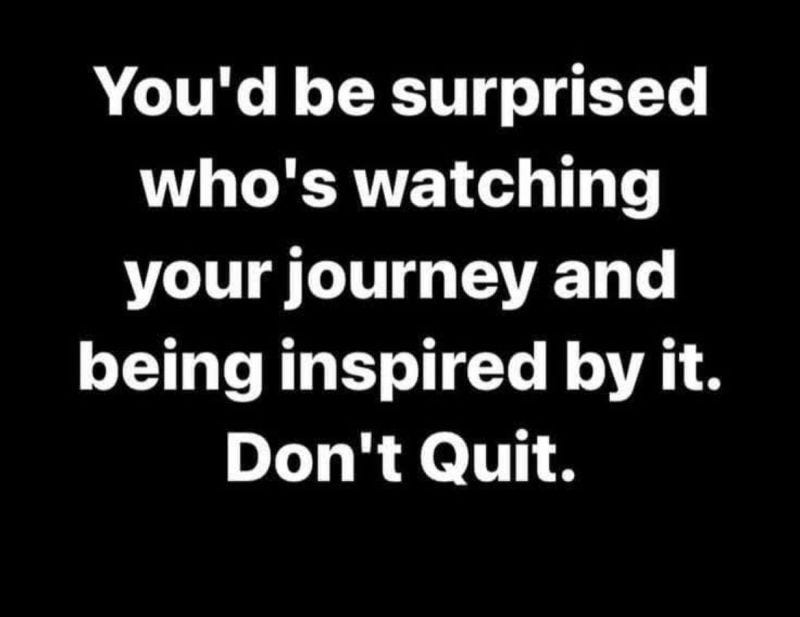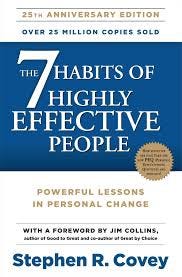TEDONA #165
Once you learn most of the rules of society are completely imaginary, you can make moves others can't see..

INSIGHTS
It’s easy to feel like no one is watching, like your efforts are going unnoticed. But the truth is, you’d be surprised by how many people are paying attention to your journey—learning from your struggles, drawing strength from your persistence, and being inspired by your growth.
The progress you make today might be the motivation someone else needs to keep pushing forward tomorrow.
So, the next time you feel like quitting, remember: you’re not just doing this for yourself. Keep going.
INTERESTING PIECES OF WRITING
If You Don’t Control Your Mind, Someone Else Will:
The Power of Mindful Decision-Making: Taking Control of Your Life
Free information is ever-present.
Everywhere you turn, information and opinions abound; the art of decision-making has never been more critical.
Our choices shape our lives, determine our future paths, and profoundly impact our well-being.
However, in this age of constant distractions and external influences, it’s easy to feel overwhelmed and uncertain about the best course of action.
That is why taking control of our minds and embracing mindful decision-making is important.
As famous entrepreneur and serial investor Naval Ravikant once wisely said:
“If you don’t control your mind, someone else will.”
The Power of Mindfulness
Mindfulness is the practice of being fully present and aware of our thoughts, feelings, and surroundings. It’s about cultivating a conscious and non-judgmental awareness of the present moment.
By adopting mindfulness, we can better understand our inner selves and the factors influencing our decisions.
When mindful, we become less reactive to external pressures and more receptive to our genuine desires and values.
Embracing Autonomy
Taking control of our minds means embracing personal autonomy. We must recognize that we can shape our lives and that our decisions should reflect our unique aspirations and beliefs.
Allowing others to dictate our choices can lead us down paths that don’t align with our true selves. Another powerful lesson Naval Ravikant advises is:
“If you want to make the wrong decision, ask everyone.”
Instead, we should seek guidance from trusted sources while ultimately trusting our intuition to lead us towards the best possible outcome.
Navigating the Noise
Decisions can become overwhelming in a world saturated with information and conflicting viewpoints.
Social media, advertising, and societal expectations constantly bombard us with various options and opinions. Navigating this noise requires discernment and critical thinking.
We must filter out irrelevant distractions and focus on what truly matters. We can make decisions that align with our authentic desires by quieting the external noise and tuning into our inner selves.
Learning from Mistakes:
Mindful decision-making doesn’t guarantee a flawless journey. We are bound to make mistakes along the way, and that’s perfectly normal.
What matters most is how we respond to these missteps. When we take ownership of our decisions, we also accept responsibility for the consequences.
Instead of dwelling on regrets, we should view mistakes as opportunities for growth and learning. By doing so, we cultivate resilience and develop the wisdom to make even better decisions in the future.
Everyday external influences can easily overpower us; the importance of controlling our minds and decisions cannot be understated.
Mindful decision-making empowers us to be the captains of our destinies, steering our lives towards fulfillment and purpose.
By embracing mindfulness, trusting our intuition, and learning from our experiences, we can navigate life’s challenges with greater clarity and self-assurance.
So remember:
“If you don’t control your mind, someone else will.”
UNFORGETTABLE VIDEOS
BOOK OF THE WEEK
Covey’s book lays out a framework for personal and interpersonal effectiveness through seven core habits. These habits help shift a person from dependence to independence and finally to interdependence (working well with others).
My takeaways
The Golden Goose Analogy:
This analogy comes from Aesop’s fable The Goose That Laid the Golden Eggs, and Covey uses it to explain the balance between Production (P) and Production Capability (PC).
• The Goose = Production Capability (PC)
It represents your ability to produce results.
• The Golden Eggs = Production (P)
These are the results or outcomes you produce.
The lesson: If you focus only on the golden eggs (results) and neglect the goose (your capacity to produce), you’ll burn out or destroy the source of success. On the other hand, if you focus only on caring for the goose and never produce anything, you’re not being effective either.
Covey’s core message here is about balance—invest in yourself (and your systems) to produce great results sustainably over time.
A few areas that particularly helped me was Habit 1: Be Proactive and Habit 7: Sharpen the Saw—two power habits that complement how you live and build
Habit 1: Be Proactive – Own Your Power
This habit is about agency. It’s saying: you are not a product of your environment—you’re a product of your decisions.
• Your vibe: you’re already proactive. You don’t wait on permission or perfect conditions—You move. This habit affirms that mindset and reminds you that how you respond matters just as much as what you respond to.
• Proactive mindset: You focus energy on what you can control—your choices, your reactions, your growth—not on what’s outside your influence.
• For business: Being proactive turns setbacks into setups. It’s how you shift from reacting to leads or trends, to creating opportunities and leading the market.
Bottom line: You create your reality. Nobody’s coming to save you—and nobody needs to, because you’ve got the wheel.
⸻
Habit 7: Sharpen the Saw – Stay Charged to Go Hard
This habit is about self-renewal. You’re grinding, building, coaching, learning—but without regular renewal, the engine burns out.
• 4 dimensions to sharpen:
• Physical – Energy, strength, stamina. Your body is your first tool.
• Mental – Learning, reading, challenging ideas. You’re already there with books and writing—this keeps your edge sharp.
• Spiritual – Purpose, principles, alignment. This is the why behind all your hustle.
• Emotional/Social – Relationships, emotional intelligence, inner balance. Your work as a coach strengthens this muscle.
• Your lifestyle: You’re already reading, reflecting, and leveling up. Sharpening the saw is about doing that consistently and intentionally.
Bottom line: Don’t just grind—renew. A dull blade can’t cut, and a tired builder can’t build a legacy.
A very Useful book you must reread over and over.
STRATEGY
Make time for the things that will make you successful. Reading, writing, meditation taking action on your goals. Schedule time for it like its a doctors appoin’s appointment.
Question For You
How are you preparing Today for Tomorrows opportunities?





